Police failed to arrest an American spy after she killed at teenage motorcyclist while driving on the wrong side of the road because they prioritised her welfare over a ‘prompt and effective investigation’, a damning review has found.
Anne Sacoolas fled back to her homeland under cover of diplomatic immunity 19 days after being allowed to leave the scene of the head-on collision that left 19-year-old Harry Dunn fatally injured.
The August 2019 collision happened just 30 seconds after the mother-of-two had driven out of a US air base in Northamptonshire, where Sacoolas had enjoyed a barbecue with her husband Jonathan, a diplomat, and their children.
Harry’s family launched a three-year fight for justice which culminated in Sacoolas being handed a suspended sentence at the Old Bailey after pleading guilty via videolink from Washington to causing death by careless driving.
Now a review into Northamptonshire Police’s handling of the investigation, commissioned by chief constable Ivan Balhatchet, has found officers allowed Sacoolas, now 47, to be driven home by her husband because they believed the ‘necessity test’ had not been met for arrest.
The report also heavily criticises Mr Balhatchet’s ‘Walter Mitty’ predecessor Nick Adderley, who was sacked last year after a misconduct panel found he lied and exaggerated his naval rank, length of service and achievements when applying for the role.
The review detailed how Mr Adderley had made ‘erroneous statements’ about Sacoolas’s immunity status which led the Foreign Office to request he did not repeat them, and outlined how Mr Adderley’s conduct created an ‘adversarial position’ with the Dunn family’s spokesman, Radd Seiger.
The review also found that while Harry had been drug-tested as a matter of ‘routine’, Sacoolas – who a court later heard was ’employed by an intelligence agency in the US’ at the time of the collision – was not. It recommended that Northamptonshire Police should ensure that drugs wipe screening is mandatory for suspects at fatal and serious collisions.
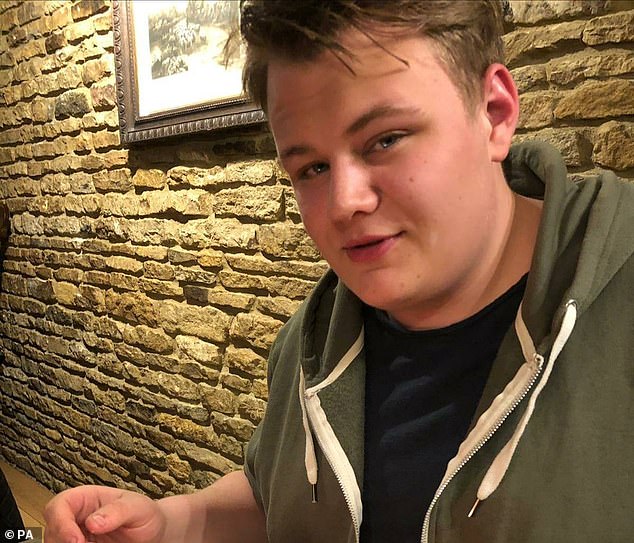
19-year-old Harry Dunn died in August 2019, when he was struck by a Volo XC90 driven by US intelligence agent Anne Sacoolas outside RAF Croughton in Northamptonshire
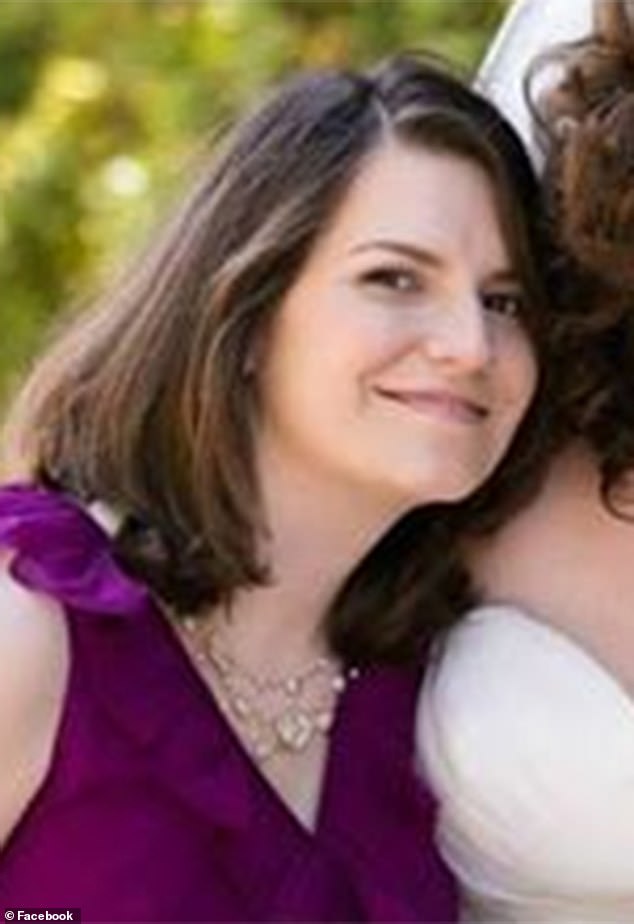
Anne Sacoolas (pictured) had been at a barbecue on the US air base with her family before following her husband out of the base driving separate cars
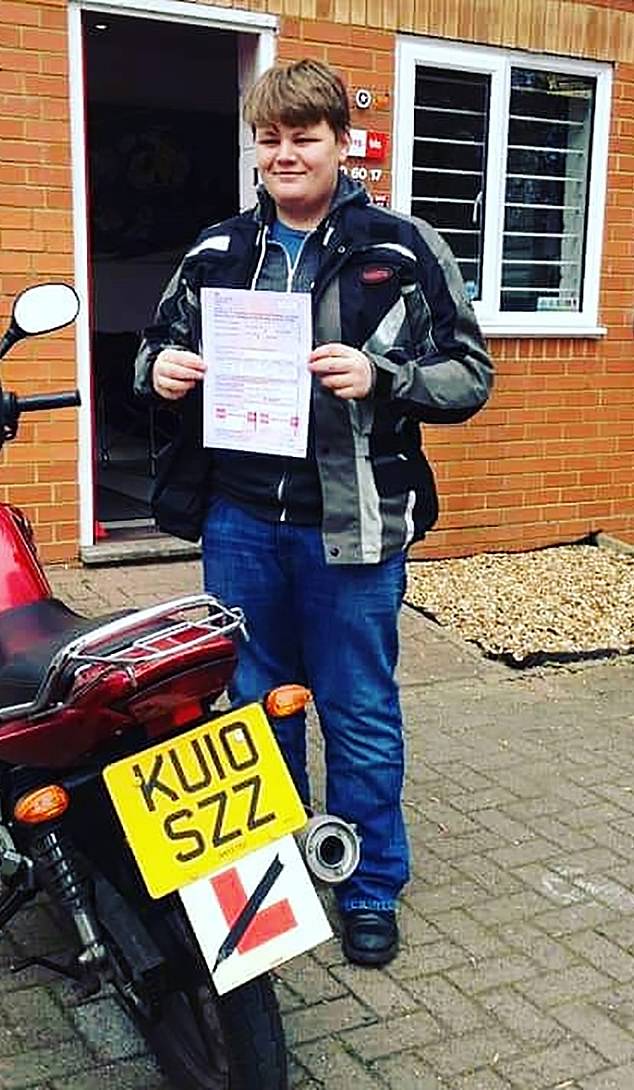
Harry Dunn (pictured) was described in the report as an ‘accomplished motorcyclist’ who had already amassed a large number of motorcycle miles
The Dunn family first heard rumours that the suspect – who lived in a nearby village – had fled the country at Harry’s funeral, but it was eight days later when police eventually confirmed the devastating news to them.
Harry’s mother, Charlotte Charles, said the failures by the force were something ‘no family should ever have to endure’.
She said the report ‘confirms what we have known for years – that we were failed by the very people we should have been able to trust.
‘Harry was left to die on the roadside. Sacoolas was not arrested, even though the police had every power to do so.
‘She fled the country, and they didn’t tell us. These are failures no family should ever have to endure.’
In October 2019 Mr Adderley held a press conference which caused ‘numerous issues from a Family Liaison perspective’ after he accused Mr Seiger of making a ‘wholly inaccurate’ statement and warned him to ‘exercise constraint in his commentary’ of the case.
The review, by Karl Whiffen, a retired former head of the East Midlands Special Operations Unit, found Mr Adderley’s interactions with the media ‘had a significant negative impact’ on the Dunn family.
The report also established that subsequently, the then chief constable initiated ‘direct contact with Mr Seiger via Twitter (X) messaging service’.
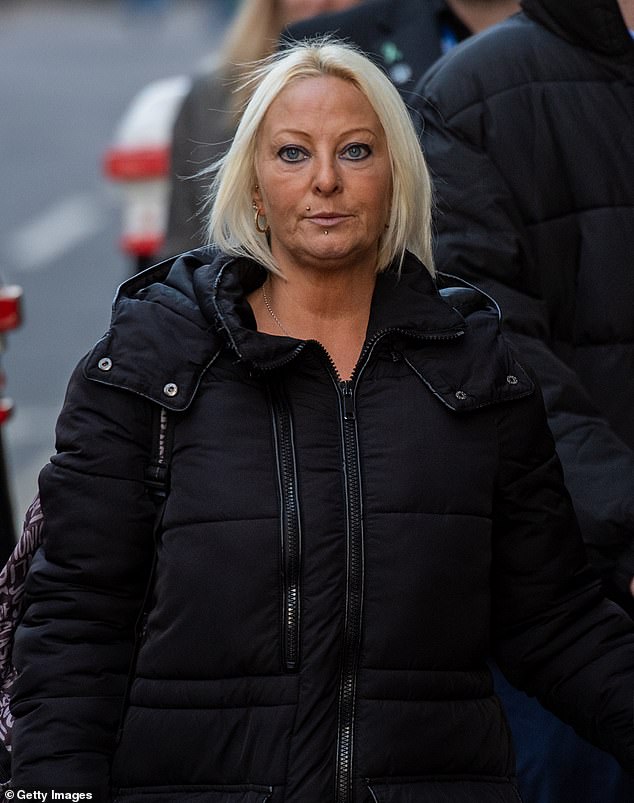
Harry Dunn’s mother Charlotte Charles, pictured outside the Old Bailey ahead of Anne Sacoolas’s sentencing in December 2022, said Northamptonshire Police committed ‘failures no family should ever have to endure’
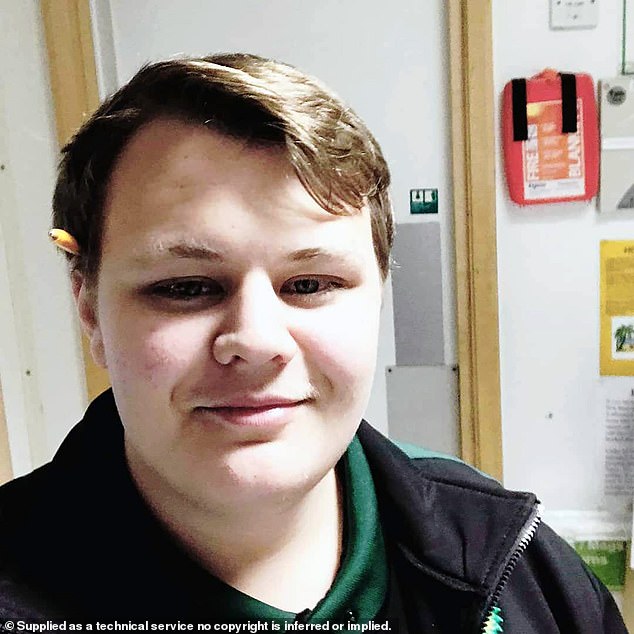
Sacoolas had been driving on the wrong side of the road for 20 seconds before she hit Mr Dunn (pictured)
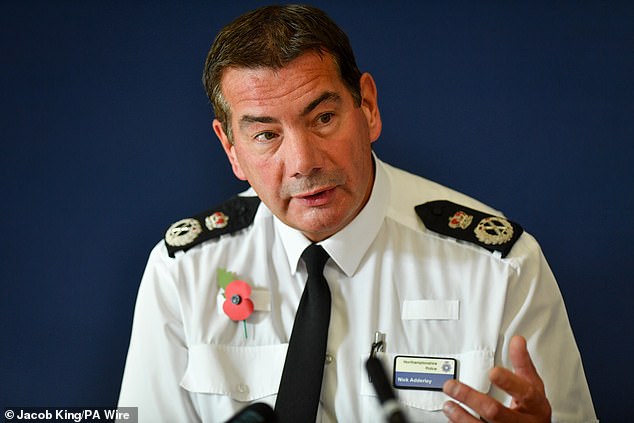
Then Chief Constable Nick Adderley, a a press conference in October 2019 where he caused ‘numerous issues’ for his officers after accusing Dunn family spokesman Radd Seiger of making a ‘wholly inaccurate’ statement
The senior investigating officer (SIO) reported that this made efforts to regain the Dunn family’s ‘trust and confidence…even more of a challenge as it may as it may have appeared that they were withholding information that CC Adderley might have been willing to provide’.
The review said the chief constable’s leadership had ‘a direct impact in the trust and confidence of the family in Northamptonshire Police’.
It added that Mr Adderley hampered the SIO’s efforts to regain family’s trust and ‘rendered almost redundant’ a new family liaison strategy devised by the SIO after the chief constable made himself the point of contact to Mr Seiger, and then failed to update his officers on what was discussed.
Mrs Charles, from Charlton, Northamptonshire, was appointed MBE in the King’s Birthday Honours list at the weekend for her outstanding services to road safety.
Addressing the role Mr Adderley played in the force’s failings, she said she remains ‘so angry’ at him, adding: ‘We knew from the outset that there was a problem with him and we will never forgive him for launching his personal attacks on our neighbour and spokesperson Radd Seiger, the one person in our tragedy who had the courage to stand up and help us when the police and our own government refused to do that.’
Mrs Charles also thanked the senior officer in the case who ‘showed genuine care and commitment when others above her fell short’.
The review, published on Wednesday, found there is potentially a culture at Northamptonshire Police of not arresting suspects ‘in circumstances such as these, which could lead to evidence not being obtained.’
A total of 38 recommendations were made in the report, including that the force should adopt an ‘investigative mindset’ at serious road crashes and review how it recovers material from the scene of a collision.
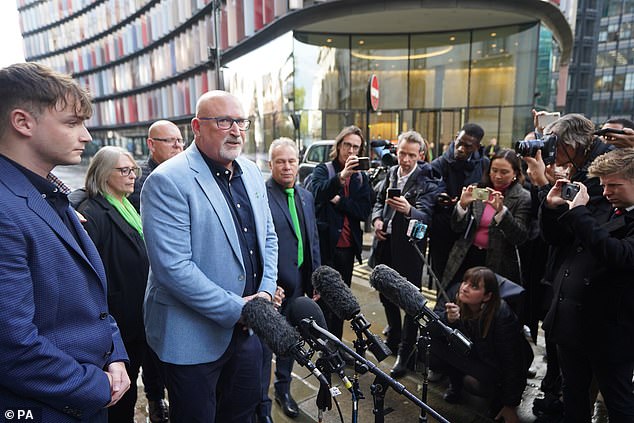
Radd Seiger talks the media with Harry Dunn’s family outside the Old Bailey in London, after Sacoolas pleaded guilty in October 2022
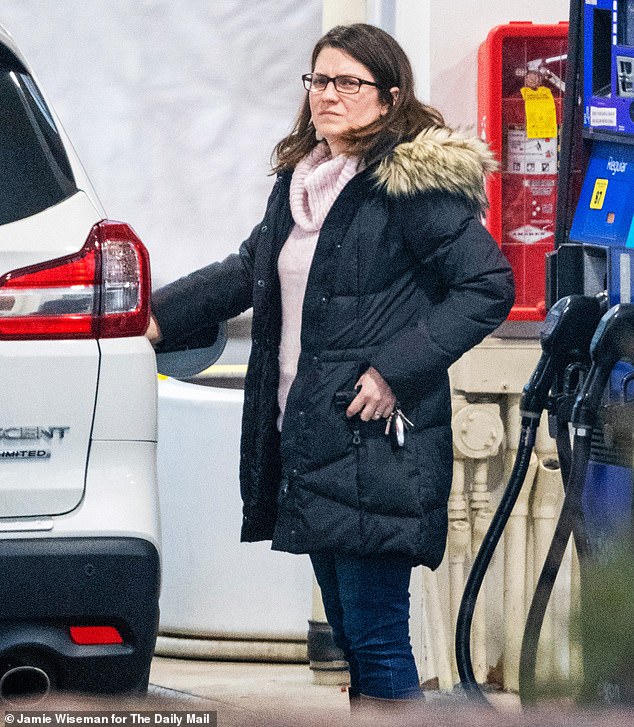
US citizen Sacoolas (pictured in Virginia) was ’employed by an intelligence agency in the US’ at the time of the collision, a court heard
It read: ‘A report has been prepared and concerning the consideration of arrest, the (Serious Collision Investigation Unit) lead is of the view that the decision not to arrest is not explained in enough detail and the overriding factor in the decision appears to be the welfare of the suspect and her suffering from shock, with little to no consideration around the full necessity test under the Police and Criminal Evidence Act.
‘A prompt and effective investigation was not considered or articulated.
‘The view is that in these circumstances the suspect could and should have been arrested to assist the evidence gathering process.’
It continued: ‘The duty (police sergeant) made the decision not to arrest.
‘The rationale was largely based on a belief that the necessity test was not met, and information received that Anne Sacoolas was in shock.
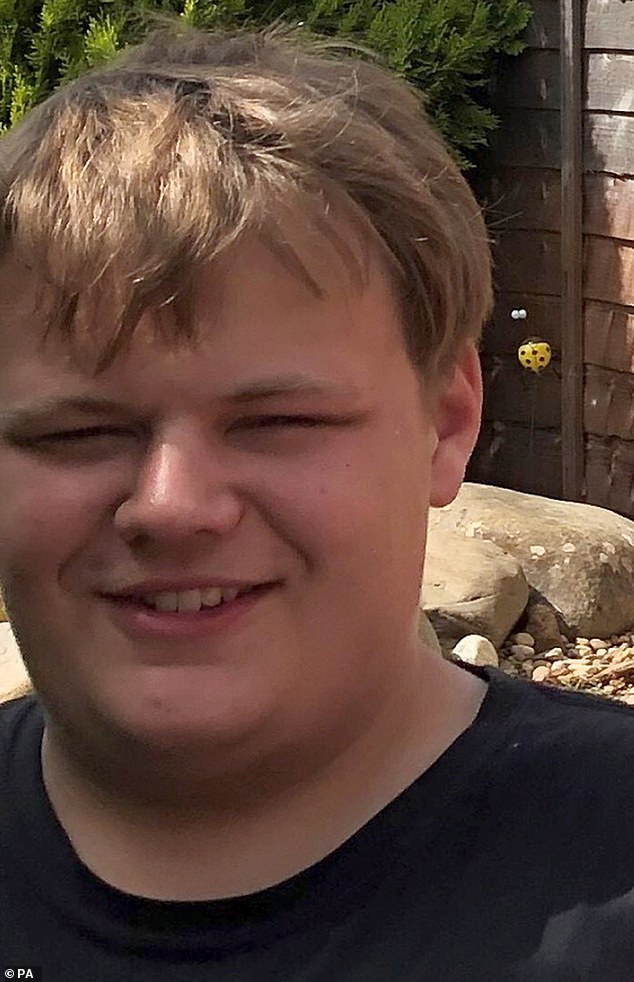
The US State Department asserted diplomatic immunity on behalf of Sacoolas and she was able to leave the UK 19 days after the fatal collision which killed Harry Dunn (pictured)
‘Whilst the welfare of any person is a concern for officers, this should not have prevented the arrest of Anne Sacoolas.’
Mr Seiger said the ‘honest’ review ‘lays bare, in graphic detail, a series of grave errors including an almost total absence of capable leadership’ from Mr Adderley.
He added: ‘The failure to arrest Sacoolas, which the report acknowledges the police had the power to do, is staggering and so upsetting’.
Assistant Chief Constable Emma James, the force’s Head of Protective Services, apologised to the Dunn family for failing them ‘on a number of fronts’.
She said there had been a ‘clear’ failure to ‘do the very best’ for Harry, adding: ‘Much of the learning which the Force has taken from this has already been put in place and we make a number of specific recommendations for best practice at a national level.












